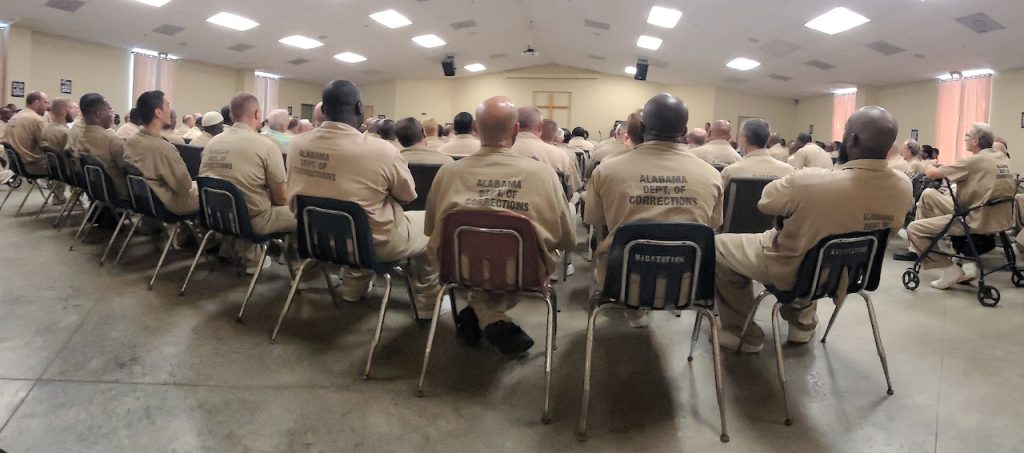By Ivana Hrynkiw
Lawyers for six Alabama inmates argued during a Monday hearing that the prison system’s punishment of inmates for failing to go to work violates the newly updated state Constitution.
The inmates filed the lawsuit in May, arguing they want to work for an employer outside the prison system, but they do not want to be punished by the prison system “for not working if (they) cannot work or decline to do so, including for reasons such as illness or unsafe working conditions.”
If prisoners miss or refuse work, according to the inmates’ lawyers, the Alabama Department of Corrections can take away phone privileges and commissary access, revoke good time, or order someone to solitary confinement. The department can also dole out additional work inside prison walls without pay.
These prison punishments can also create a record of disciplinary infractions, making someone deemed safe enough for work release less likely to be paroled.
The inmates, who weren’t present at Monday’s hearing, are represented by lawyers from the Center for Constitutional Rights. There are five male inmates and one female inmate named in the lawsuit. All are Black.
“They want to work,” said senior staff attorney Jessica Vosburgh. “They just don’t want to be subjected to punishments if they don’t work.”
The lawsuit, filed in Montgomery County Circuit Court, is based on the change in the state Constitution, after voters in 2022 chose to update the document to remove racist language. The lawyers noted that Article 1, Section 32 of the new state Constitution now reads: “That no form of slavery shall exist in this state; and there shall not be any involuntary servitude.”
The suit challenges the state’s “brazen failure to heed the will of the people of this state, who voted in 2022 to ratify a new state constitution that bans slavery and involuntary servitude in all its forms, with no exceptions.”
Monday’s hearing was set to discuss the state’s motion to dismiss the case. The state case, filed in Montgomery County and handled by Circuit Judge James Anderson, is slightly different from a federal case, which includes similar allegations about the state’s work release program. In that case, filed in December, prisoners said they’ve been denied parole and forced to work jobs at fast food restaurants as part of a “labor-trafficking scheme” that generates $450 million a year for the state.
On Monday, lawyers cited some of the reasons inmates would refuse work in the lawsuit like health hazards, inadequate pay, or workplace harassment or abuse.










